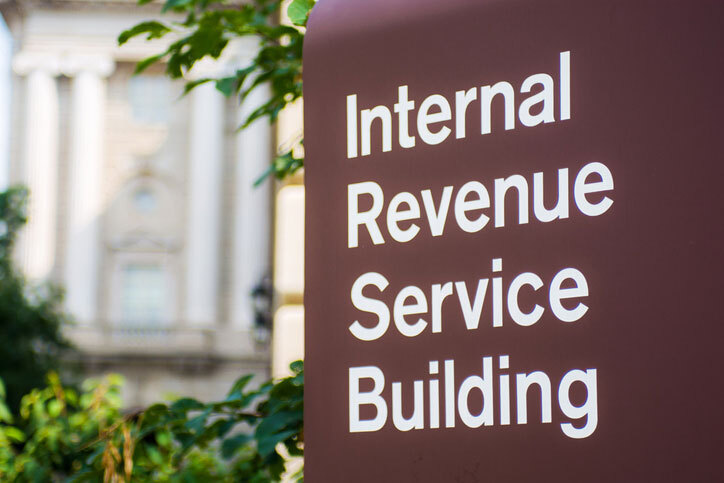NFT Taxes: The Ultimate Tax Guide For Beginners
With 2023 coming up, it should be no surprise that cryptocurrency has only gotten more popular than ever. But, since crypto is a relatively new investment, many taxpayers don’t know the basics — like how NFT taxes work.
If you purchased or are thinking about purchasing NFTs, then this is the article for you. Additionally, if you’re interested in how regular cryptocurrency taxes work, check out this comprehensive crypto tax guide.
In this article, we’ll cover:
- NFT basics: What are they, How does it work? How to buy and sell NFTs?
- How are NFTs taxes? How do NFT taxes work?
- Why are NFT taxes more complicated than regular cryptocurrency taxes?
- How to legally avoid and minimize NFT taxes
What Are NFTs? How Does It Work?
A non-fungible token (NFT) is a unique piece of data that’s used to confirm ownership of digital files. This distinctive code is recorded in the blockchain, a secure digital ledger that keeps track of transaction data.
They’re considered non-fungible because the unique signatures make it impossible to exchange NFTs. Money and crypto are fungible since they can be traded for one another.
NFTs are said to be proof of ownership, however, in reality, things are more complicated. NFTs are new, and there are no laws surrounding them granting them copyright protection or other legal protections over the digital file.
For example, let’s say you’re interested in buying a piece of art. Just a few years ago, you would buy the piece and take it home. But NFTs allow you to buy it digitally, give you a unique token (proof of ownership), and you claim ownership of a digital file. Artwork is a popular thing to buy with NFTs.
But, again, this is tricky because unless you’re the original artist, you don’t have a copyright claim to the work. So, even if you buy the NFT, you may not have the right to the original piece.
A lack of these regulations is why NFT matters are complex, not to mention the tax code surrounding it.
NFT Creation: How To Buy And Sell NFTs?
NFTs are created to form digital objects that represent both physical and digital assets. Art is a good example of this. The artist creates a work of art (let’s say digitally) and then sells that piece like they normally would, but in exchange for the art, the buyer gets an NFT that states their ownership.
NFTs are very similar to buying collector items, but instead of having a physical collection of stamps, you get digital tokens instead.
There are many online NFT marketplaces where you can buy and sell NFTs.
Do NFTs Get Taxed? What Are Taxable And Non-Taxable Events? What’s The NFT Tax Rate?
Since NFTs are considered assets, they do incur taxes. To be clear, creating (minting) an NFT isn’t a taxable event, exchanging it for money is.
Taxable NFT events:
- Purchasing an NFT
- Selling (and making a profit) on an NFT
- Earning royalties
Non-taxable NFT events:
- Minting an NFT
- Donating NFTs
Of course, there are more taxable and non-taxable events, with more likely to be implemented in 2023.
The current tax rate for NFTs align with the current short-term and long-term capital gains rates. Short term gains rates vary from 10% – 37% while the long term capital gains rates range from 0% to 20%.
The percentage of tax you pay depends on how long you held the NFT and what your income tax rate is.
How To File NFT Taxes In 2023?
Here are the 3 steps to file NFT taxes in 2023:
1. Collect information: Check to see if your NFT marketplace sent you a tax form. Since NFTs are still a gray area, they may not have sent you any tax information. You must fill out Form 1099, along with other forms depending on if you’re a creator or a buyer. If you’re a buyer, you’ll also need to fill out Form 8949 (Sales and Other Dispositions of Capital Assets) and IRS Schedule D (Capital Gains and Losses).
If you create and sell NFTs for a living, you must pay taxes based on your filing status (self-employed, type of corporation, partnership, etc).
For the most accurate information, check your marketplace’s tax guidelines. The bigger marketplaces should send you tax information.
2. Double check federal and state income tax guidelines for NFTs: Some states have passed their own laws regarding sales taxes on NFTs. Additionally, NFTs will have more laws and regulations in the upcoming years, so be sure to be on the lookout for those as well.
3. Meet with a tax professional: Though NFTs are new, this doesn’t mean you’re off the hook for paying taxes. Meeting with a tax professional who specializes in NFTs and crypto is a good investment.
Owing back taxes to the IRS racks up interest and penalties fast, and it’s worth simply paying a professional to file your taxes for you to avoid this situation.
If you’re stuck in tax debt, from NFT penalties and interest or otherwise, check out TaxRise’s free tax consultation. We will evaluate your unique financial situation and suggest the best course of action for you. Book your call today.
NFT Tax Issues: A Tax Complication Overview
Taxes are tricky in the U.S., and NFTs are no exception. In fact, the tax situation gets even trickier on cryptocurrency since it’s new to the game.
The entire purpose of crypto is to be decentralized — in other words, the government doesn’t create NFTs like they print money. Since the government likes to tax its citizens but it doesn’t have full transparency, this makes reporting NFT taxes on your tax return more complicated.
Of course, you don’t want to pay more taxes than necessary. Unfortunately, these issues are still being carefully considered. But again, remember that this won’t hold up as an excuse to not file your taxes. Paying the correct amount in taxes is your responsibility, not a third party’s.
How To Avoid NFT Taxes?
As we’ll explain more below, there are a few NFT tax loopholes (and general guidelines) that will legally save you money.
1. Track Fees
Keep receipts of every NFT transaction. Fees directly related to buying or selling an NFT will reduce your capital gains taxes.
For example, let’s say you buy an NFT worth $100, but incur a $20 transaction fee. Later, you decide to sell this NFT once it gained $70 in value, putting its worth at $170. Let’s calculate the capital gain of this transaction.
Remember that the formula for calculating capital gains is: gross proceeds – cost basis = capital gains. So, in this example, $170 – $100 – $20 = $50. The capital gains, the amount you owe taxes on, is $50.
2. Prioritize Long-Term Investing
NFT taxes are a lot higher when you sell short-term (less than one year) when compared to long-term. So holding your NFTs will reduce your taxes considerably.
But, if you don’t want to do this, then your second best option is to sell NFTs when you have a low-income year. Capital gains are calculated based on your regular income taxes, so this will also help minimize your NFT tax burden.
3. Buy NFTs With Money (Fiat Currency)
Buying NFTs with regular money may sound obvious, but it’s not. Many who buy NFTs do so with cryptocurrency, but as we mentioned in this article, you incur taxes when exchanging cryptocurrency.
You don’t want to get taxed twice. So, using fiat currency instead of crypto to buy NFTs is a good way to avoid taxes.
4. Utilize Capital Losses And Gains
If you have a lot of NFTs that lost market value, selling them would give you capital losses, which reduce your tax burden.
Harvesting these NFT losses will reduce your taxable income.
5. Gift NFTs
Donating to charities or gifting NFTs to friends and family is an excellent way to minimize your NFT taxes. Additionally, receiving an NFT as a gift also means you don’t have to pay taxes.
The maximum amount of money you can spend on gifts without having to pay taxes is currently $12.06 million.
The Takeaway
Income taxes are vital to complete correctly to avoid steep interest and penalties. The same goes for NFTs and cryptocurrency. If you need help in this process, contact our tax professionals.
If you’re tired of being stuck in tax debt, sign up for your free tax consultation. From this call, you’ll be able to determine if you qualify for our services and which tax relief program will work best for your unique situation.
TaxRise has helped thousands of taxpayers just like you resolve their tax issues and erase their tax liability. Book your call and get started today!




